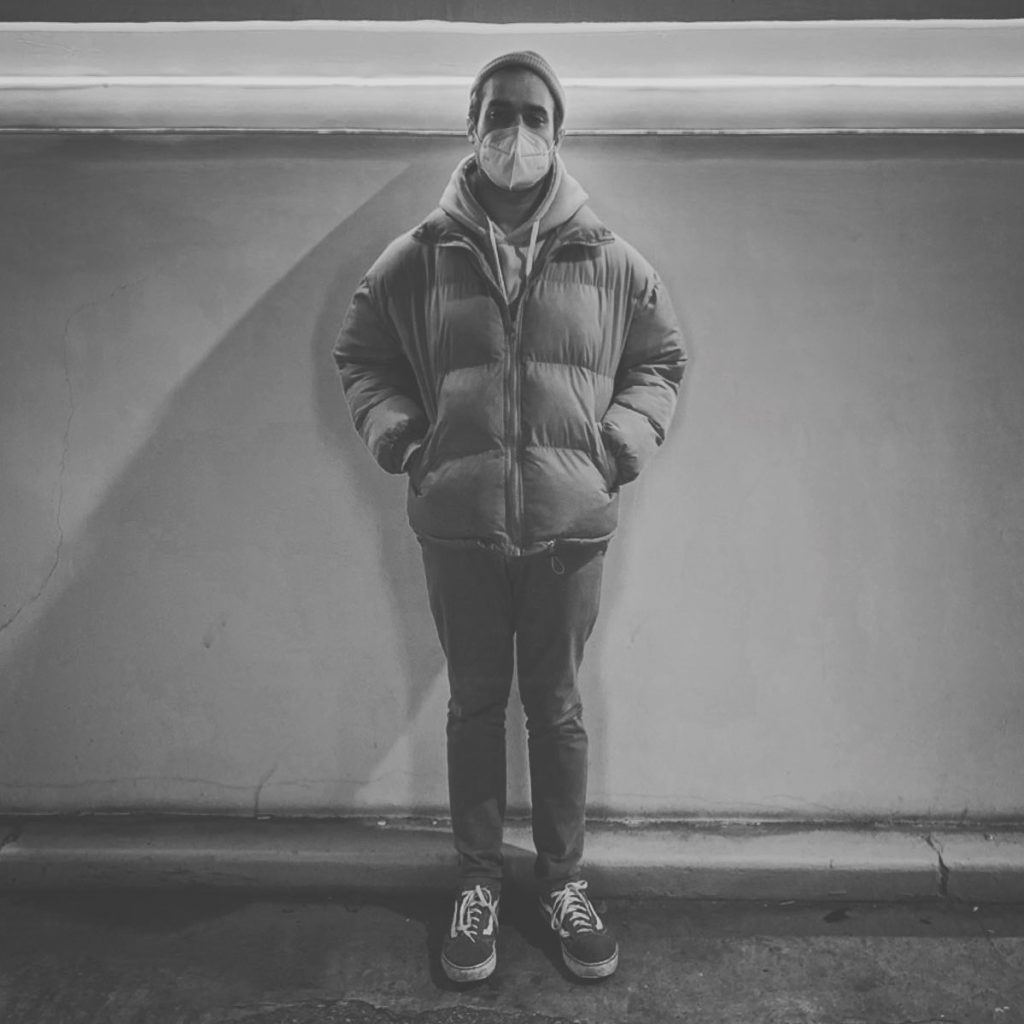HSU alumnus gives perspective on living in China during COVID-19
A letter goes a long way
Humboldt State University alumnus Alejandro Arredondo was in Shanghai, China teaching the English language three months ago before seeing the effects of a pandemic that has affected the world.
Arredondo received his bachelor’s degree from HSU in 2017. He studied here as a psychology major with a minor in Spanish.
During his time at Humboldt State, Arredondo contributed to radio station KRFH as well as El Leñador as a writer and translator.
Rosamel Benavides-Garb is the former chair of the department of World Cultures and Languages who advised Arredondo to minor in Spanish. Benavides-Garb is the current interim dean.
He said by email that he saw Arredondo as a student who understood the linguistic sociology of California in being a bilingual person.
Arredondo was able to translate, interpret and teach Spanish within Humboldt County while taking field experience classes with Benavides-Garb.
“Alejandro quickly became an outstanding student in these classes,” said Benavides-Garb. “… I was witnessing his development and transformation, and naturally, I became his mentor. Through this process, he also became a leader in the class and the community.”
Arredondo credits a letter of recommendation from Benavides-Garb with him getting a job overseas.
“Living in China, having exposure to the language and culture of our Chinese brothers and sisters is transformational in many positive ways,” said Benavides-Garb. “I knew this experience was going to be a marking experience in his development.”
In August of 2017, Arredondo began his journey halfway around the world after seeing an ad for a company called English First that was hiring teachers.
At the time, Arredondo had recently graduated from HSU, and was looking for work in the Tijuana, Mexico or San Diego areas as a teacher.
The HSU alumnus says that one day he submitted an application through the English First website because he felt his paperwork was ready after attempting with the company before.
EF is a company that hires people to teach English as a second language abroad in Asian and European countries.
Arredondo said that this time he got a phone call two hours after turning in his paperwork, but still felt skeptical of the whole thing. The company scheduled an interview for the next day and offered him a job thereafter.
“I felt like a part of me gave up on my people, on China, stuff like that… This isn’t the end, I’m just moving into a new phase of my life.”
-Alejandro Arredondo
“I think maybe at the moment it was a little impulsive, just because I wanted to do something, but couldn’t find anything to do here (Tijuana),” said Arredondo.
From California shores to Shanghai skyline
Within a matter of months from applying for the teaching job, the new teacher was in Shanghai, China.
He said that when it came to the flight, he was used to the long travel since he would drive from the Tijuana/San Diego area to Humboldt County.
During May of 2018, Arredondo arrived at his hotel and was expected to start the training for work the very next day. Newly arrived in Shanghai, Arredondo began visiting someone he knew in the area, trying out the local food and learning how to get around the city.
“I ate a lot of dumplings, and a lot of noodles,” said Arredondo. “There’s so much food, but they also have a lot of international restaurants.”
Shanghai’s population was more than 24 million people as of 2019. The big city is known for its skyline, shopping, active art scene and several sports teams.
Arredondo experienced the ups and downs of being a teacher in a foreign country, from communicating with parents to being able to bond with some of the students.
He was working in Shanghai for over a year when Arredondo’s contract with English First was up, and he had two weeks off.
So, he decided to return to the Pacific Coast for the first time since arriving in China. He went to San Diego and then to Tijuana to visit family in December of 2019.
During this time in December, China was treating people with a respiratory illness, which researchers then identified as the 2019 novel coronavirus.
When Arredondo returned to Shanghai for work in January, that’s when he heard of the illness.
Pandemic
A version of the coronavirus was originally found in bats that live in the Yunnan Province of China. The Yunnan Province is around a thousand miles away from the city of Wuhan in the Hubei Province.
As of now, researchers have not found how the virus was transmitted to humans.
The first death that was connected to the coronavirus was recorded by the Chinese state media on Jan. 11. This came less than two weeks before people were set to celebrate a new year on Jan. 24.
Arredando said he still felt the virus was far from where he was in Shanghai during January, even though he knew it was a threat.
On Jan. 30, the World Health Organization declared the coronavirus an emergency of international concern.

Arredondo said that’s when he started to see changes in Shanghai. He began to look for respirator masks, as he started to see everyone dawning one.
“Everything stopped,” said Arredondo. “I wasn’t working. I was getting a new visa (at the time), and the process was put on hold.”
Arredondo said that he saw Shanghai, the most populated city in China, as a ghost town when he would go outside.
Since many people in Shanghai already do most of their shopping on the online market platform Taobao, Arredondo said the transition wasn’t too hard for him.
He said that on his trips out, he would either use DiDi, an Uber-like service, or his bike.
“Everything stopped.”
-Alejandro Arredondo
The HSU alumnus said that he didn’t feel the transition to having to teach students online with a new company was hard. There were even perks, like being able to teach while still being in his pajamas.
It was during February that Arredondo’s brother announced his wedding.
Fresh off the highs and lows of his brother’s wedding, Arredondo began to feel unsure of what to do.
Last obstacle, getting home
Arredondo said that he contemplated staying in Shanghai when he got a phone call at a going-away party saying that his flight to Los Angeles had been cancelled.
He then rearranged things for a later flight. Arredondo said he was having his temperature checked while having to also fill out a questionnaire up to the time he had to board his flight back to the United States.
While back in L.A., Arredondo stayed at a hotel and then made his way to San Diego, with the intention of heading to be with his family in Tijuana.
That’s where he faced a new issue.
Arredondo said that he was detained when officers at the U.S. Customs and Border Protection – San Ysidro Port of Entry were telling him that he was the first person coming into Tijuana who had been to China.
After another set of questions and receiving gloves and a mask, they let him go.
Since then, he says he feels like the social distancing measures have been really taking a toll on him physically and mentally.
He notes that there are people in the U.S. who have been following these measures since late March, while he’s been abiding by these rules since early February.
Arredondo is now with his family in Tijuana. He said that he’s had time to think about the decision he made to leave.
“At first I was being a little hard on myself,” said Arredondo. “I felt like a part of me gave up on my people, on China, stuff like that. But then I decided to look at it positively and be more optimistic. This isn’t the end, I’m just moving into a new phase of my life.”
He said that a positive thing about being in Mexico is that he is with family Benavides-Garb said in an email that he is happy to know where Arredondo is, and that he wishes to continue seeing his former student make a difference in the world.
“I always imagine him learning at every juncture, and working with people who are doing amazing things in invisible ways,” said Benavides-Garb. “I want to say to him that my own life was enhanced by his positive spirit when he was at HSU, and this I will eternally treasure.”




